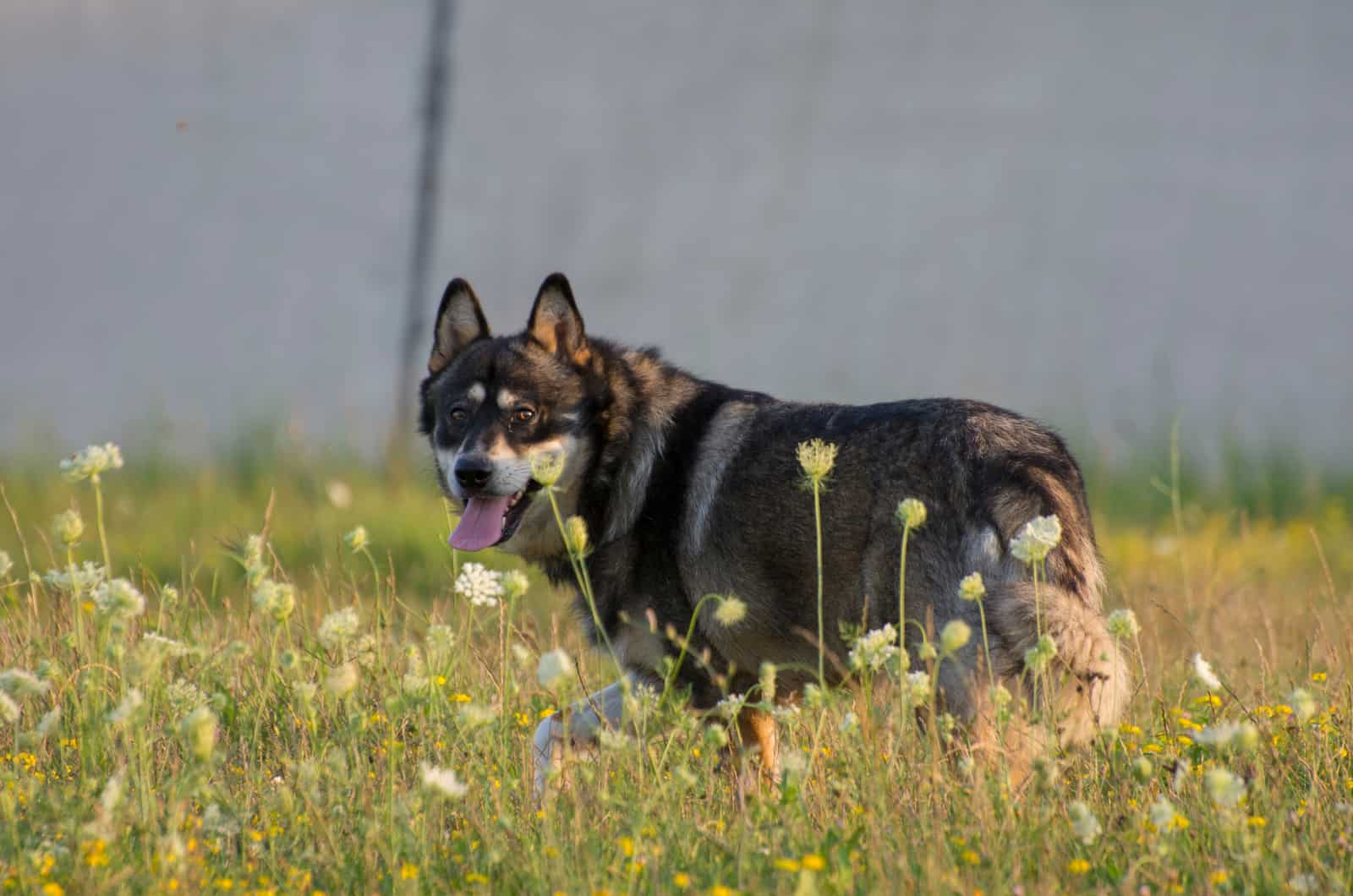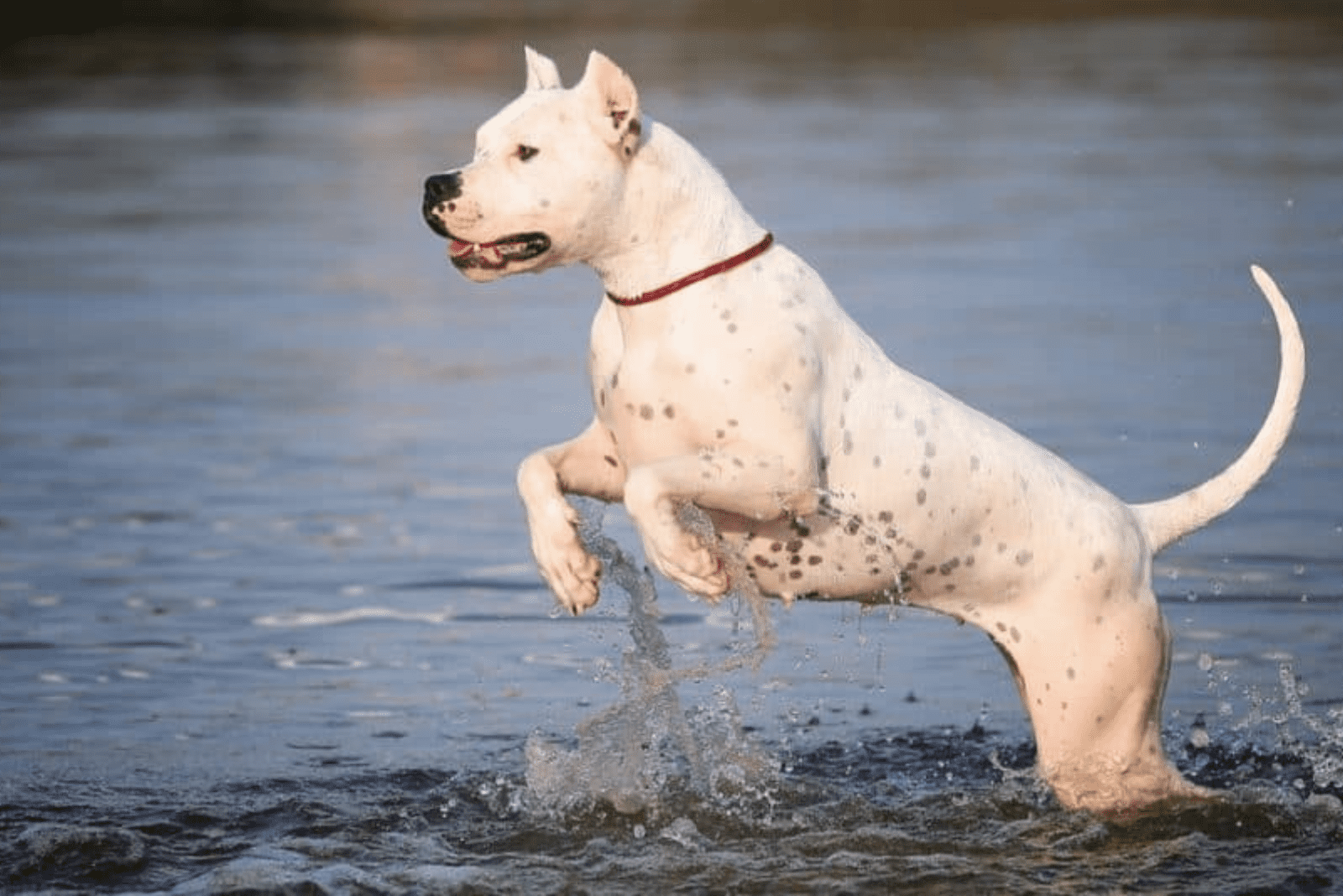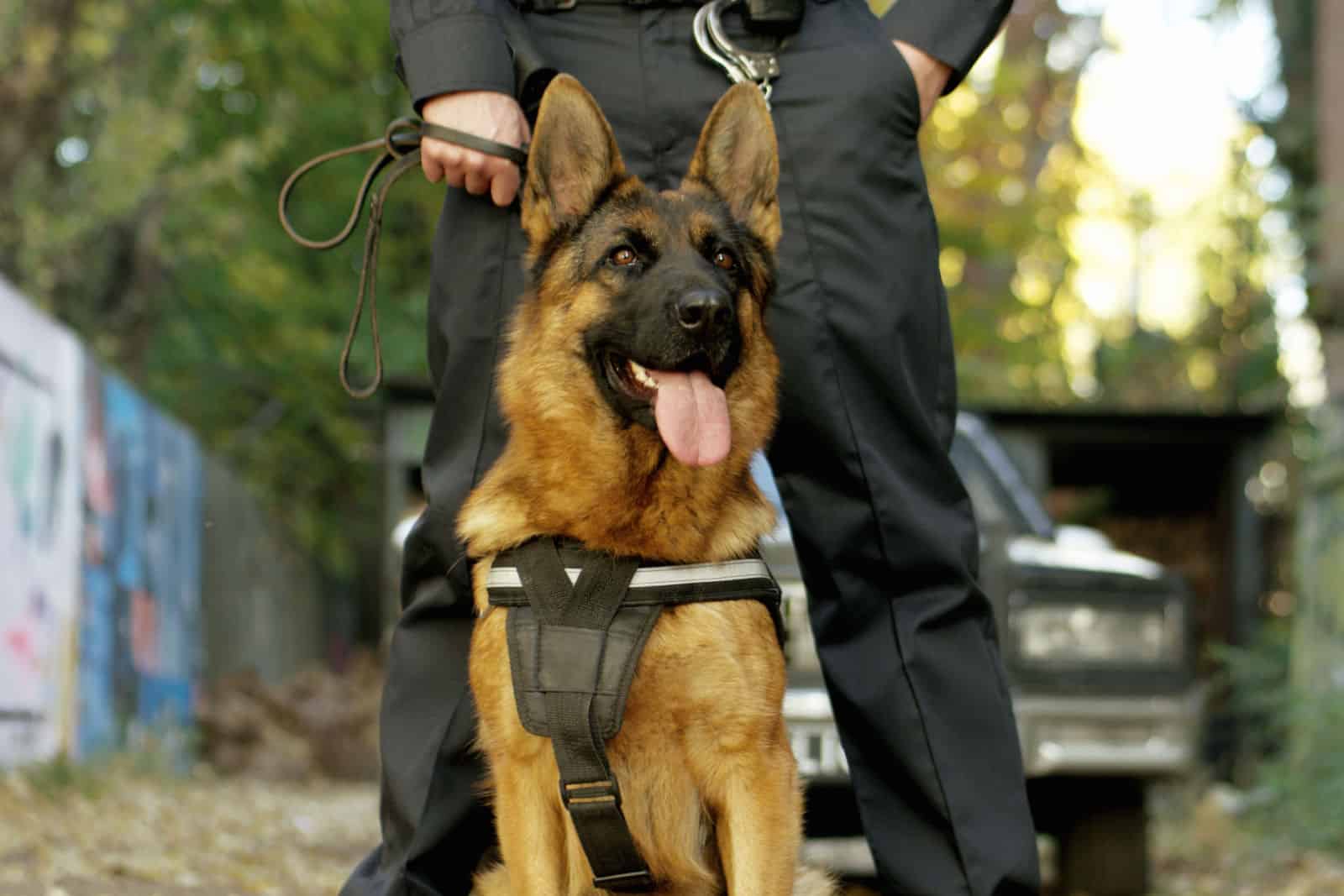Among all pets, dogs are known as the most popular emotional support animals in the world! Whether you own a small lap dog breed or a big dog, their purpose is practically the same – to fulfill your life and make you feel better!
Even though all dogs can offer support just by being present in your life, there are still certain breeds that are more likely to perfect the task of being an emotional support animal (ESA).
Typically, these canines are extraordinarily smart, intuitive, eager to please, and trainable, but at the same time, they are affectionate, laid-back, and gentle to their hoomans.
We did the research based on the most recent data, and guess what – these nine breeds have proven to be the most suitable for this role! Let’s check them out!
Why Emotional Support Dogs Are Important

Before we jump to the list, it is important to emphasize the reasoning behind this research! Brooks et al1 emphasized seventeen different studies in their 2018 review that indicate the benefits of pet ownership.
In their review, they argue that canine companionship benefits military veterans with PTSD and reduces their feeling of loneliness, depression, and irritability, while at the same time, it increases the feeling of calmness.
Owning a dog itself happens to be perceived as a sense of purpose, and it can distract people with stress and anxiety from their usual triggers. However, owning an ESA dog adds an extra value, as those dogs are inherently capable of reciprocal companionship.
In other words, they understand you, cope with your emotions, and provide you with the feeling of security. Whether we talk about lap dogs or sporty breeds, all ESA dogs are basically “professionals” in this field, and their companionship is highly beneficial.
An ESA Is Not A Service Dog
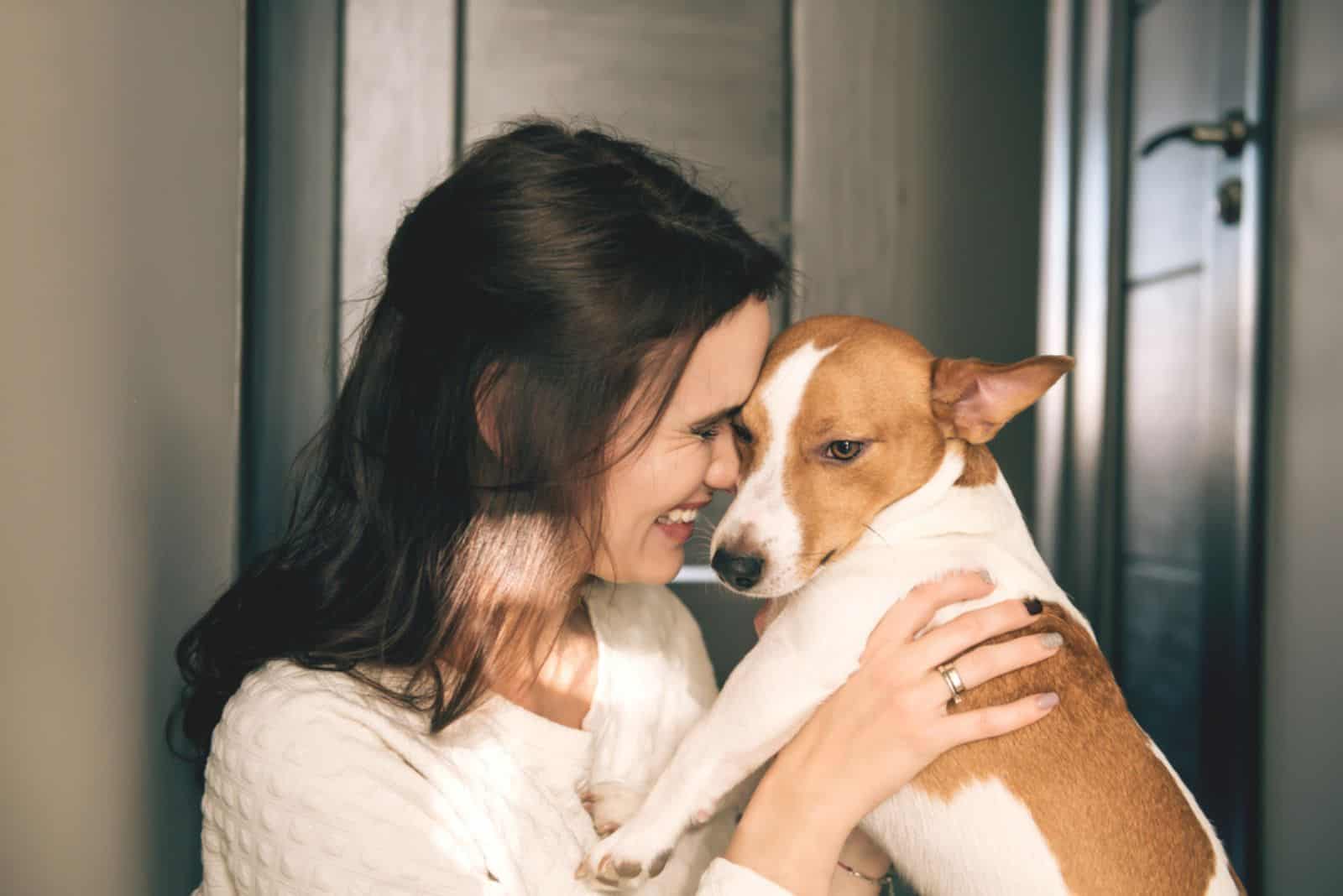
According to the ADA (Americans with Disabilities Act), there is a distinctive difference between service canines and their ESA counterparts. While service dogs are allowed by law to accompany their owners to any public place, that is not the case with ESA dogs.
On the other hand, service canines are particularly trained to perform tasks that help people with physical, mental, or sensory disability (such as seeing eye dogs), while ESA canines do not undergo this specific training.
The latter rather provide their hoomans with love, companionship, and emotional support.
9 Best Emotional Support Dogs
#1 Poodle
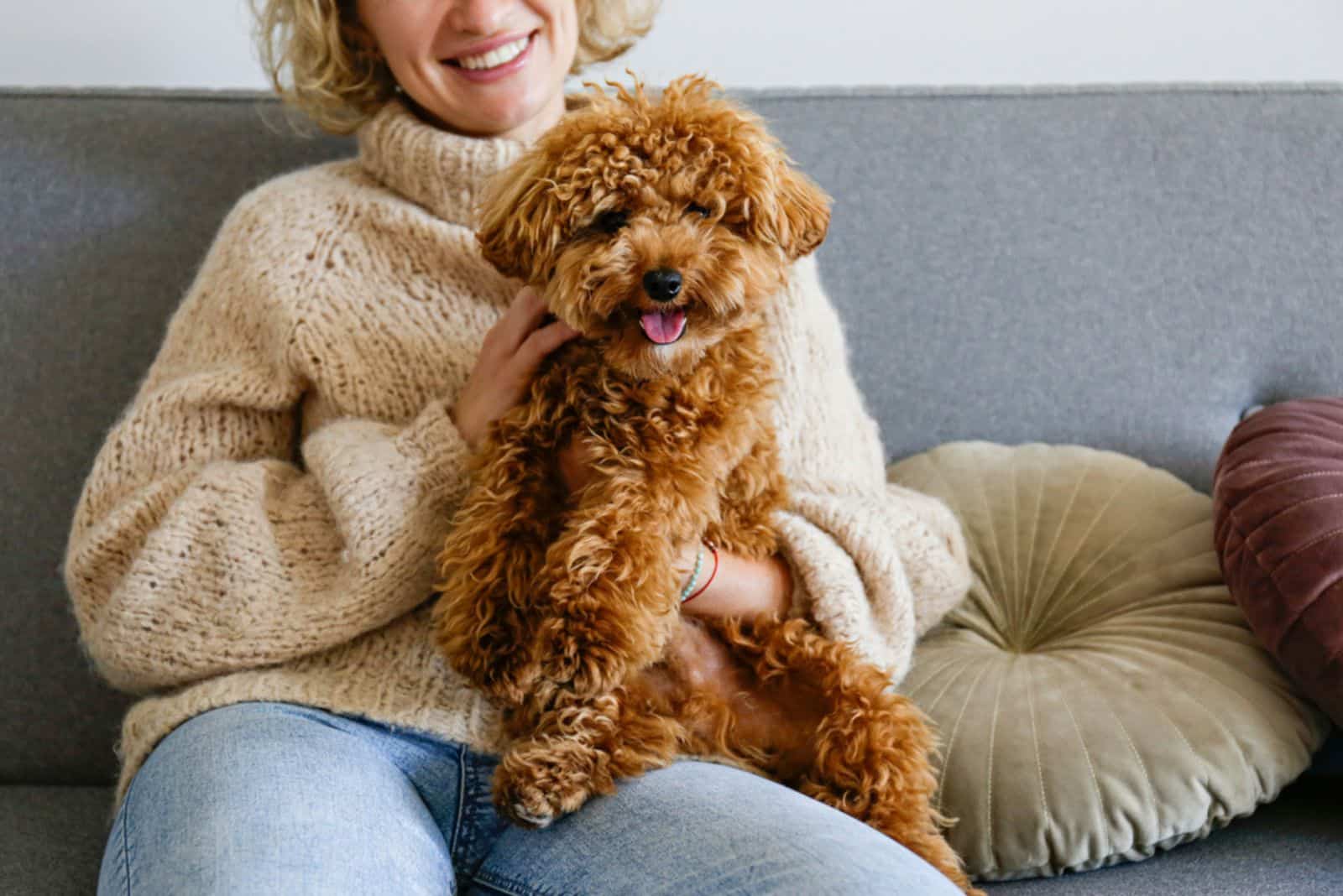
Whether they’re standard, miniature, or toy Poodles, these dogs have a many-year reputation of being on the very top of the list of the smartest dogs in the world.
They are gentle, affectionate, calm canines that appreciate the good company of their owners – and they know how to reciprocate!
On the other hand, Poodles are excellent for apartment living, as they are easy to train and they’re not excessive shedders.
#2 Labrador Retriever
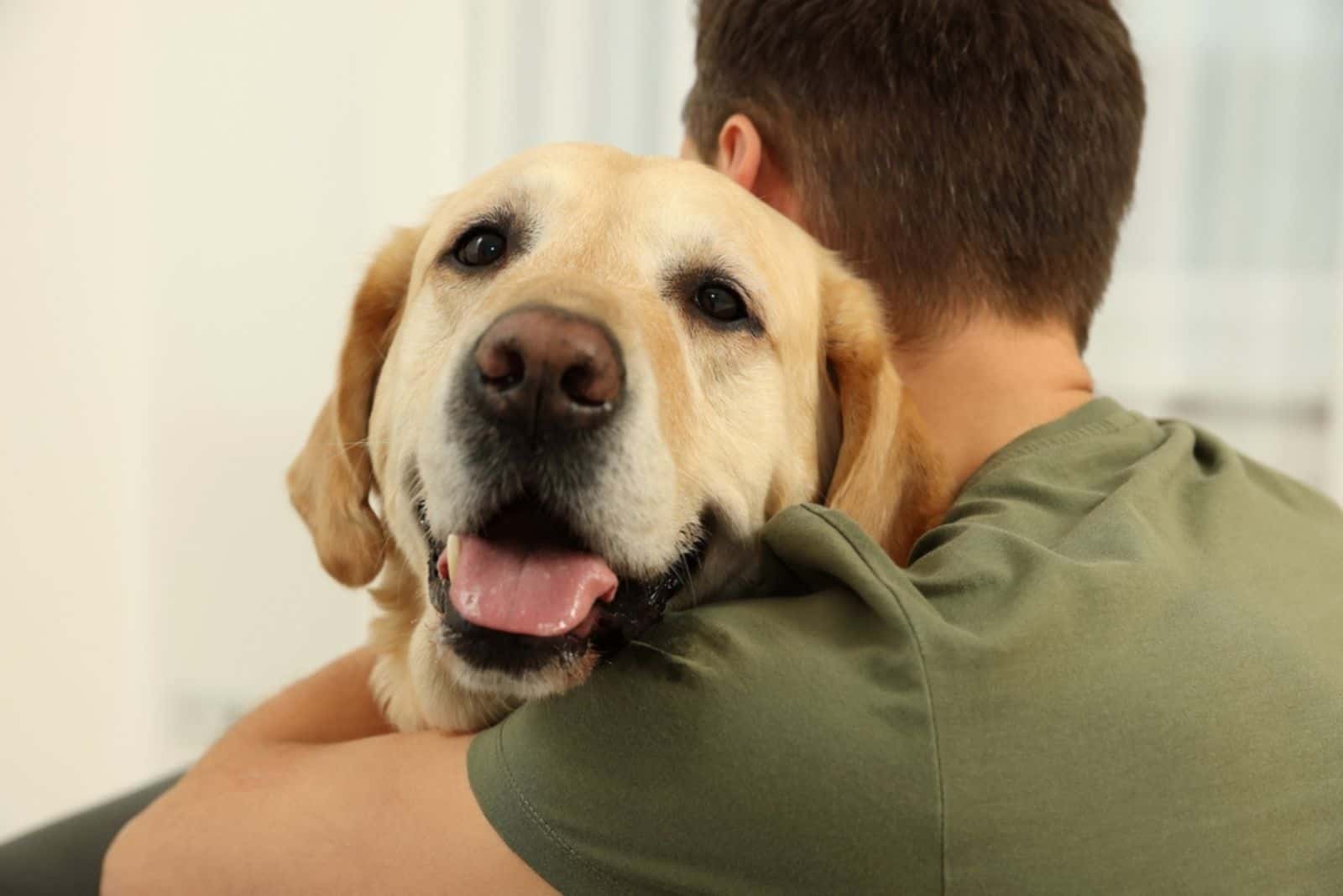
Even though the latest study reveals that Frenchies have recently overthrown Labs as the most popular breed in the United States, Labs are still going strong!
These gentle champions are often described as pawsitive, loyal, playful, and highly-intuitive dogs, which makes them perfect for providing emotional support!
Whether you decide to bring them with you on road trips, or you rather prefer spending time at home – Labs won’t mind! They will appreciate every second with you, and even better – they will make your life colorful!
#3 Golden Retriever
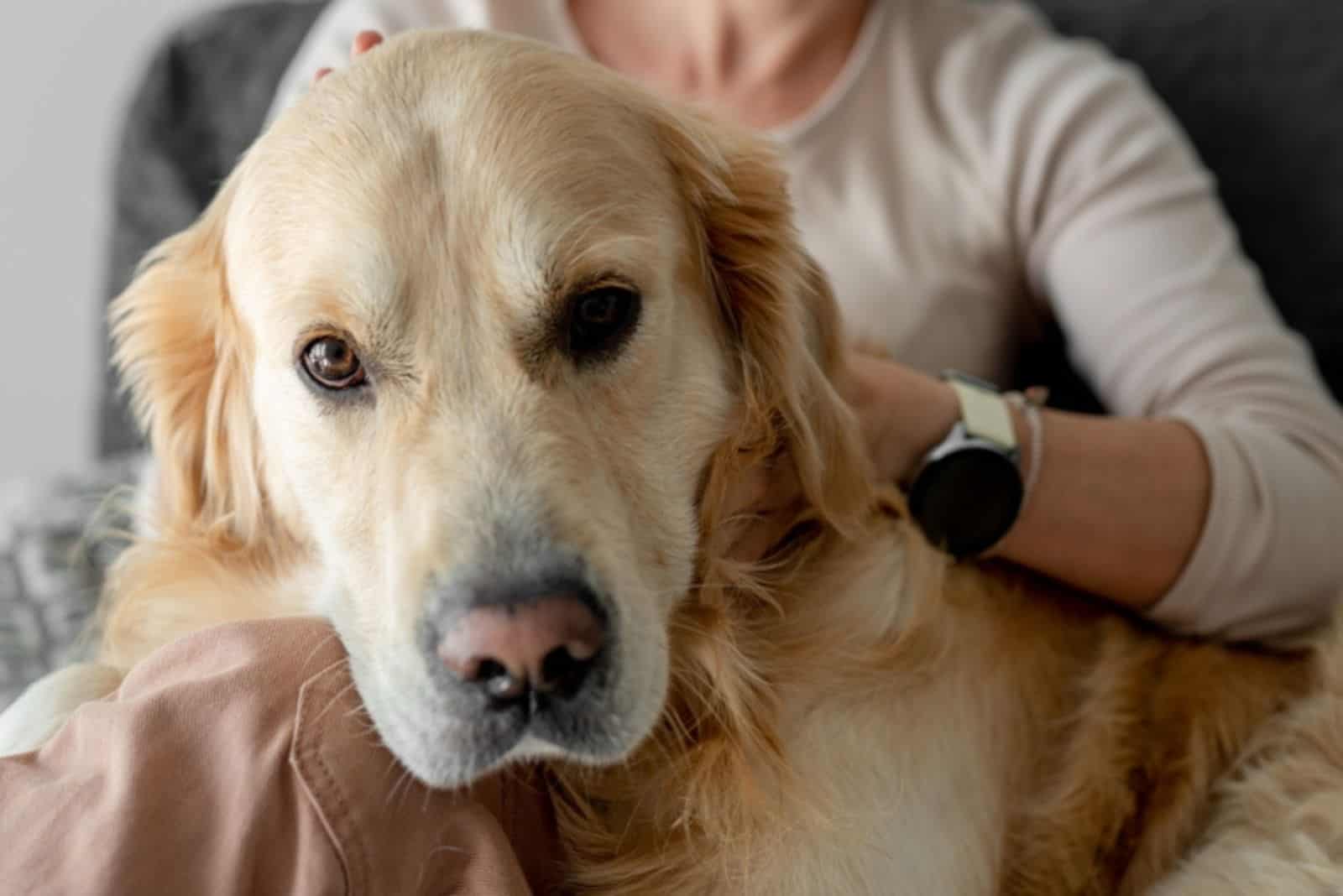
How many times have you heard that Goldies are probably one of the best family dogs in the world? Well, it’s simply true!
These golden boys and girls possess the unique charm and ability to make your day absolutely magical! They’re sporty, trustworthy, outgoing, and definitely eager to please their owners!
The good thing about owning a Goldie is that they will most definitely make you a better version of yourself, as they seek activity all the time! You can take them on hikes, walks, to dog parks, or even to the beach! They have multiple talents hidden in their golden coat!
#4 American Staffordshire Terrier
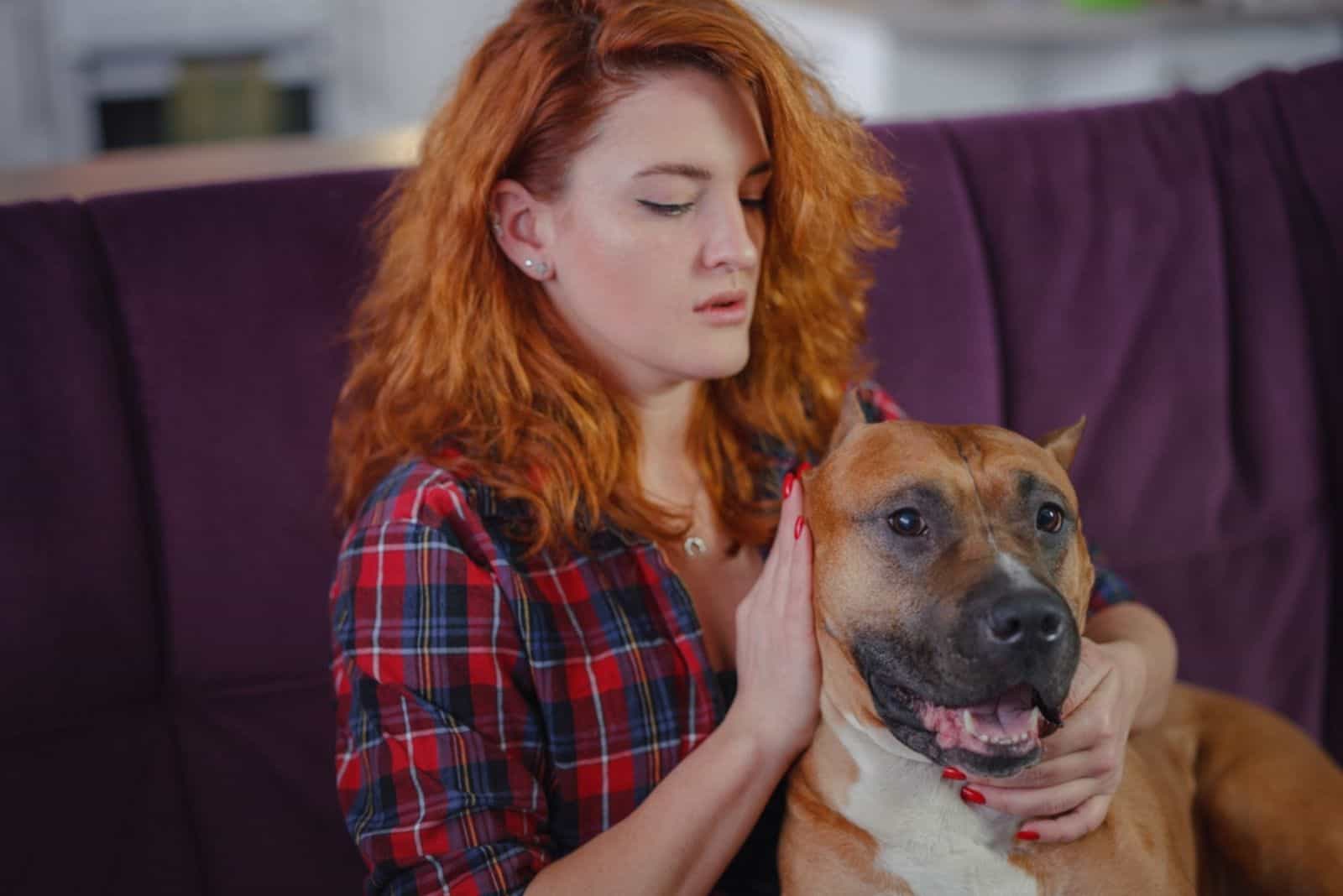
Even though many people mix Staffordshire Bull Terriers with American Staffies, the latter is a separate breed with its own qualities! Regardless of their violent past and bad media representation, these powerful canines can be excellent emotional support dogs!
They’re naturally smart and loyal, and with a little bit of extra training, they can be a trustworthy friend to the very end. The good thing about them is that they’re good-natured by default despite many stereotypes!
#5 German Shepherd
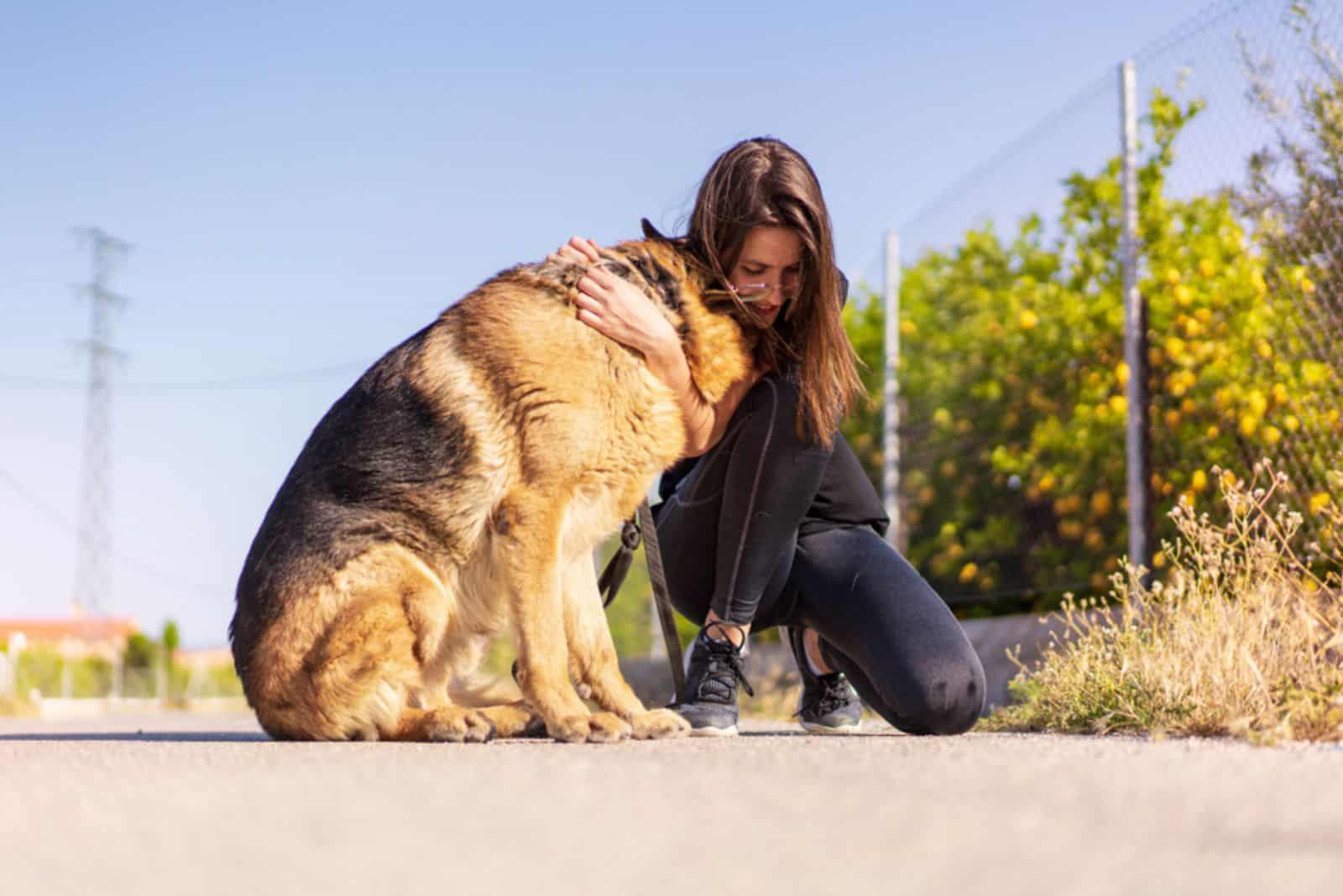
Years of good service in the police and military can make you nothing less than an impeccable, working boy… am I right? The GSDs incredible intelligence has made these pooches perfect for various tasks, including family life!
They’re not only extraordinary in the field, but in daily chores, too! German Shepherds are task-oriented dogs with a purpose, and raising them can directly impact your own feeling of self-purpose!
In other words, you can rediscover yourself by having one of these sharp boys by your side!
#6 Corgi
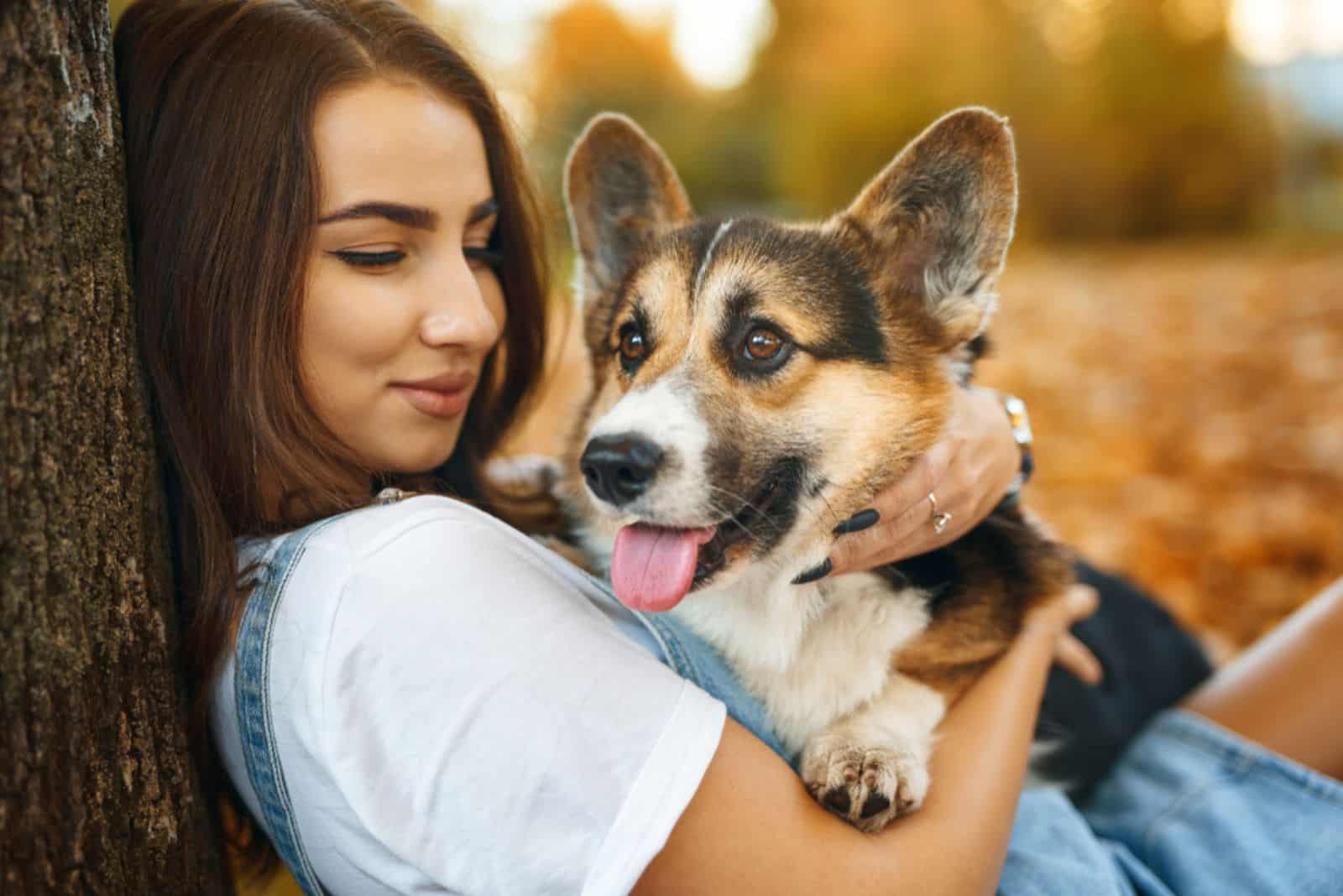
Okay, I’ll be honest with you – Corgis can go their own way from time to time, but that definitely doesn’t mean that they’re not amazing emotional support canines! After all, there’s a reason why they have been so favored by royalty!
These lively little herders will make sure you never feel alone! Even when they’re preoccupied with chasing squirrels or with frolicking in the back yard, they will always find a way to you! And, with some basic obedience training, you can definitely rely on them in times of hardship!
#7 Cavalier King Charles Spaniel
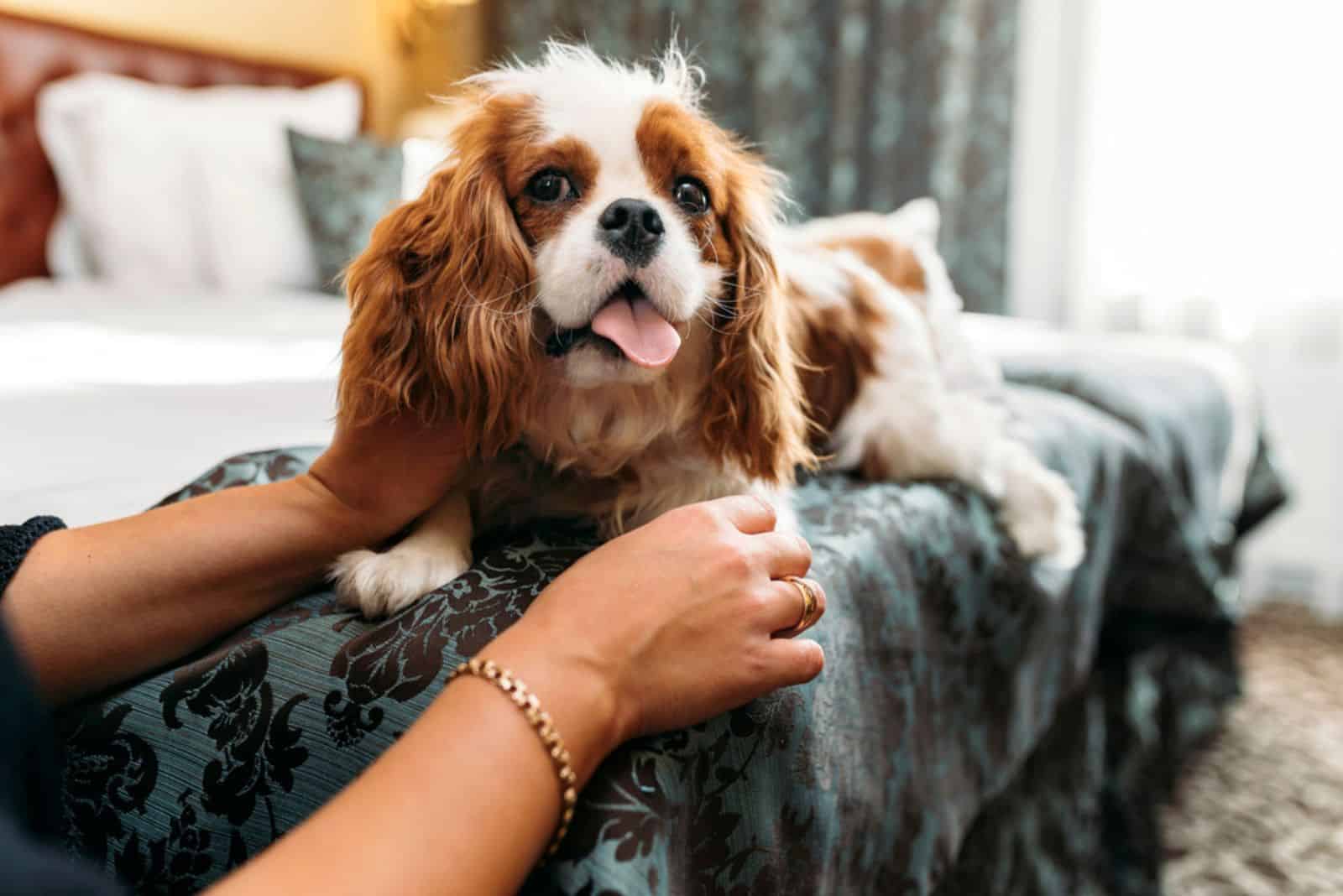
The good thing about Cavaliers is that they practically fit into everyone’s apartment! These miniature pooches are described by the American Kennel Club as gentle, graceful, and affectionate, which approves them as reliable ESA dogs!
They’re kind, loyal dogs that easily adapt to all circumstances, and even though they love being out and about, their primary focus is their owner!
#8 Great Dane
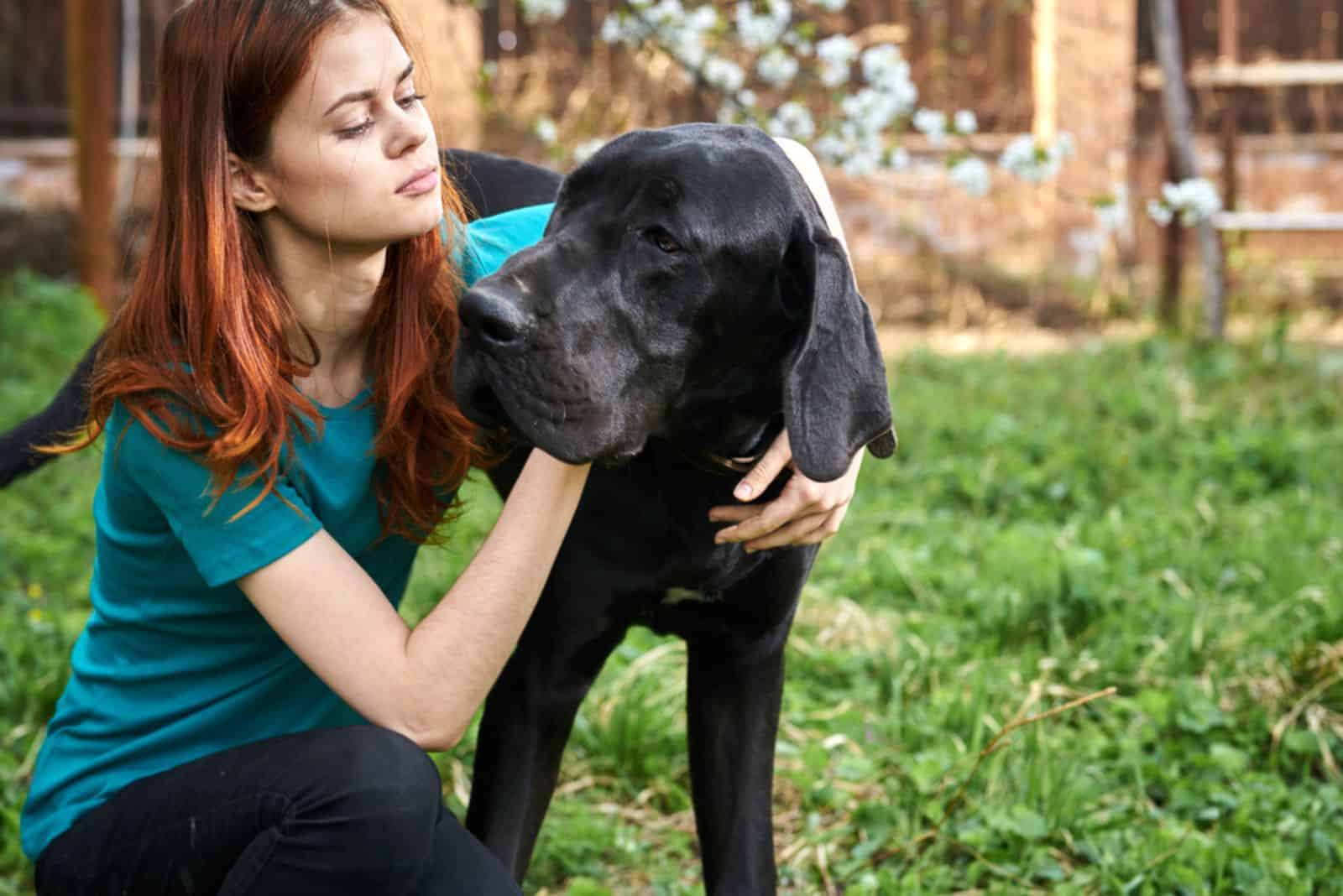
Here’s great news about Great Danes – they’re not only an amazing ESA breed – they’re basically great with everyone and everything! Great Danes have an amazing parental instinct, which marks them excellent fosters to other dogs, too!
Despite their size, they’re moderately playful, so don’t worry about keeping them inside a house. You definitely won’t find a better listener than a Great Dane, and that’s fur sure!
#9 Havanese

Last, but not least, the Havanese breed is a true emotional support hero! According to the study that measured participants’ cognitive thinking, heart rate, and blood pressure, these dogs have the best calming effect on their hoomans!
This is a lovely breed that has many admirers all over the world. Popularly known as Velcro dogs, these pooches stick to their owners’ side and never, ever let go!
If you are naturally a person who copes with stress a lot, the answer is simple: get a Havanese!
Conclusion
Having an emotional support dog has multiple benefits, but the most important of all is definitely regaining the feeling of self-purpose again!
If you’re constantly dealing with stress, anxiety, and/or depression – my honest advice would be to consider getting one of these beauties!
All of these nine dogs have their own, unique way of making their owners feel better in this regard, and your part of the job is to evaluate which of these temperaments fit you the best!
References:
- Brooks, H.L., Rushton, K., Lovell, K. et al. (2018). The power of support from companion animals for people living with mental health problems: a systematic review and narrative synthesis of the evidence. BMC Psychiatry 18, 31. DOI






